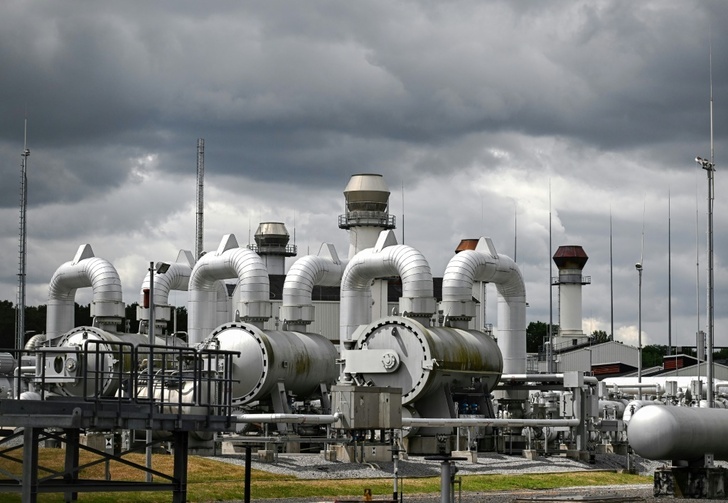The EU is "ready to discuss" a price cap on imported gas to bring down soaring energy costs, European Commission chief Ursula von der Leyen said Wednesday.
Her comment, to the European Parliament, signalled a shift in tone in Europe after powerhouse EU country Germany had expressed worries that a broad price cap might divert supplies for Europe.
It comes after 15 EU countries -- more than half the bloc -- made a joint call for the EU to impose a price ceiling on how much it would pay for gas piped or shipped in, as the northern hemisphere winter bears down.
Europe is facing an energy crunch as the price of electricity generation skyrockets because of a massive surge in the price for gas.
Russia, which used to be Europe's main gas supplier, has turned off the taps after being hit by EU sanctions over the war in Ukraine that, while not touching gas, crimped sales of its more lucrative oil exports.
"We are ready to discuss a cap on the price of gas that is used to generate electricity," von der Leyen told MEPs sitting in Strasbourg, France.
"This cap would also be a first step on the way to a structural reform and overall reform of our electricity market."
She added that "we also have to look at gas prices beyond the electricity market".
- 'Drawbacks' on supply -
Von der Leyen did not specify whether the mooted price cap would cover all gas imports -- not only the gas that arrives mainly by pipeline from Russia, but also liquified natural gas (LNG) that can be shipped around the world.
Brussels has been amenable to a cap on pipeline gas to hurt Russia and rob it of cash for its Ukraine invasion.
But it has resisted a cap on LNG, fearing that sellers might simply divert to higher-paying markets, further starving Europe of gas.
Germany, traditionally the biggest beneficiary of Russian gas, had also rebuffed the idea. But it has come under pressure from other EU countries after it announced a 200-billion-euro ($199-billion) fund to shield its own consumers from soaring prices.
Von der Leyen admitted a price cap "entails drawbacks in terms of security of supply of gas".
But she argued that "the situation has critically evolved" and, now, "more member states are open for it and we are better prepared".
She did not detail what had changed, beyond noting that Europe's stockpile of gas for winter had reached 90 percent of capacity, exceeding a target set.
She also said any price cap would be "a temporary solution" and that "exceptional times require exceptional emergency measures".
bur-rmb/lth
© Agence France-Presse
Your content is great. However, if any of the content contained herein violates any rights of yours, including those of copyright, please contact us immediately by e-mail at media[@]kissrpr.com.
Source: Story.KISSPR.com

